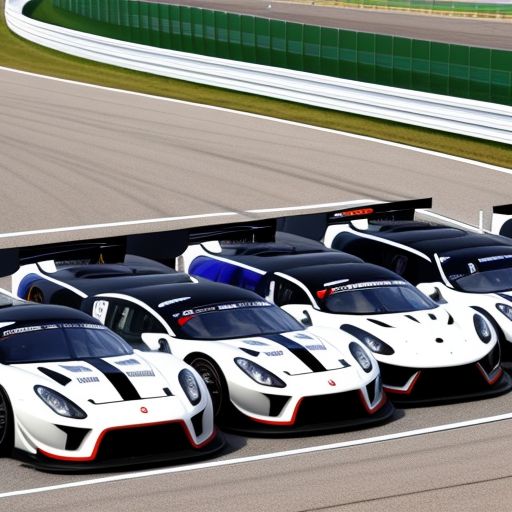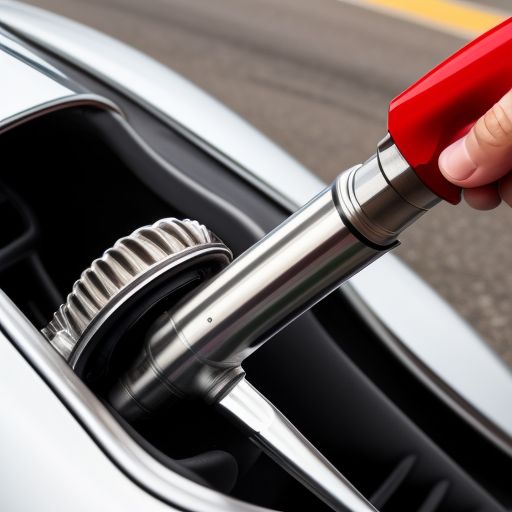Racing Fuel: What are Racing Fuel
Racing fuel is an example of gas that was manufactured with the intention of being used in high performance engines and it is mostly found in motorsport or racing activities. It primarily differs from gasoline or diesel in the sense that racing fuel is laced with certain chemicals that enhance the engine performance, increase speed and enable operation of the automobile even under extreme conditions.
We shall define what racing fuel is, its differences compared with ordinary fuel, and its advantages to performance cars in this article If you are a motorist or a professional race car driver, then racing fuels is an important subject that has to stroke your curiosity if the desire is to improve the performance of a vehicle.
Table of Content
- 1.What is Racing Fuel?
- 2. Types of Racing Fuel
- 3. Difference Between Racing Fuel and Regular Fuel
- 4. Benefits of Racing Fuel
- 5. When Should You Use Racing Fuel?
- 6. Conclusion
1. What is Racing Fuel?
Racing fuel is a form of advanced engineered fuels that is used in the racing vehicles engines only. This fuel is created to combust more at very high temperature and pressure so that more energy is generated from the engines. This fuel contains a special mixture of different chemical compounds and additives that enable it to produce more energy than the conventional petrol.
Attention has to be payed on the use of racing fuels; contrary to many people’s beliefs, it is not only because racing fuels are expensive. Racing fuels are primarily developed for improving operational capabilities of the engines, increasing their speed appreciably and stabilizing the engine performance under extreme ‘racing’ conditions. Most of these fuels are used on racing cars, motorcycles, drag racers and other performance vehicles.
Fuel for racing purposes can be found in different forms such as gasoline, methanol, nitromethane and each is suited for a particular racing event or type of engine.

2. Types of Racing Fuel
Racing fuels can be classified into various types depending on the distinct advantages they pose for various racing challenges. Some of the most common ones are:
2.1 Fuel for Race Cars
Racing gasoline is a kind of fuel that is mostly used in car racing’s. It describes a gasoline that has been modified for sporting use, with a higher octane index than normal gasoline. The parameters of change in performance with the increase in the octane index of the fuel are determined by the structural features of the internal combustion engine.
2.2 Methanol
Methanol is also a fuel utilized in competitive racing, performed in drag races or sprint car races. The fact that methanol vaporizes at a lower temperature than gasoline is one of the citrus gastly effects methyl gives to a carbureted engine. Moreover, this is more power effective and optimal for usage in racing activities that a lot of speed is required.
2.3 Nitromethane
Nitromethane is widely used in drag racing for its potential to produce much power. Nitromethane unlike gasoline or methanol has oxygen in its chemical composition which greatly enhance the effect of combustion more so even the engine power output. It causes a tremendous surge in the power output of an engine, but that level of output cannot be achieved without specially built engines which can withstand a lot of heat and pressure.
2.4 Fuel for Racing in E85
E85 is a blend of 85 percent ethanol and 15 percent gasoline. It is more eco-friendly in comparison to the normal racing fuels, especially for some motorsport activities. E85 has a high compression level which enhances the prevention of engine overheating.

3. Difference Between Racing Fuel and Regular Fuel
Racing fuel and standard fuel (for example, the gasoline used for an ordinary automobile) may be considered the same; however, they are fundamentally different when it comes to viscosity, performance, and usage.
3.1. Octane Rating
Perhaps the most discernable distinction between racing fuel and regularton fuel would simply prove to be octane, the lettering grading measure differ. The octane levels of racing gasoline are usually more than that of the Autogarage fuels. for instance, whereas normal car gasoline may have octane level of 87 to 93, racing fuel can have an octane level of 100 or more. It can of course be understood that a higher octane fuel can withstand knocking or pre-ignition, which is common to high-performance engines.
3.2 Energy Density
Additionally, supplementary fuel loads are incorporated in racing cars because such fuels possess advanced energy density making it possible to combust a larger amount of fuel containing more energy. This, in turn, leads to enhanced power credit for the engine enabling higher speeds of the vehicle and enhanced performance under pressures.
3.3 Additives
Rounding off the picture are the use of various exotic fuels which serve added purpose such as improving combustion processes in the engine, protecting the engine from excessive wearing, and even further reducing the chances of engine malfunction even at very high speeds. Regular fuels do not have such performance enhancing additives since they are not made to bear the harsh conditions of racing.
3.4 Stability at High Temperatures
Racing fuels are formulated for application in racing since they ensure sustained performance under conditions of high temperature and high pressure. Regular fuel is not able to perform continuously under such conditions and would degrade when used in a high performance system resulting in engine damage and lowered performance.
4. Benefits of Racing Fuel
There are a multitude of advantages for high performance automobiles regarding the use of racing fuel, more so in motorsports. Limelight the most glaring ones:
4.1 Engine Power Up
Comfortably one of the most renowned reasons as to why racers use such fuels in cars is that it can make the engine produce more power. There is high octane rating and improved combustion characteristics that supports the use of racing fuel in higher levels or compression than the engine can normally withstand without knocking. This will also increase the horse power and the speed of the engine.
4.2 Enhanced Fuel Efficiency of the Engine
The authors describe how racing fuel is more efficient than regular gasoline, thereby helping the engine to work on fuel more economically. This means that even when the race is on, fuel can be spent wisely to give maximum performance.
4.3 Prevention of Engine Knock
One example of such pre ignition would be engine knock as a result of the gaseous mixture burning before the piston reaches the top of the cylinder. This would contribute to blow the engine and drops its performance, safety of the engine is compromised. Knocking occurs at high temperature and pressure conditions, however the fuels can prevent it without damaging the engine.
4.4 Reduced Combustion Temperatures
Some racing fuels like methanol and E85, burn in a way that is cooler than normal gasoline. This cooler burning helps reduce the chances of the engine overheating and breaking down even when racing is fast and furious. This is especially critical in thick races where the engines are constantly run for long periods or are under serious stress.
4.5 Better Performance in Extreme Conditions
This type of fuel is also designed to perform aesthetically under the least favorable conditions that is high speeds, high temperature and high engine loading. Making it most suitable for competitive racing with regard to performance as every single enhancement counts.

5. When Should You Use Racing Fuel?
Although racing fuel has a multitude of advantages, it cannot be used for regular driving on a day to day basis. Racing fuel is created for extreme high performing engines that can withstand far much more higher compression and temperature than the normal vehicles manufactured.
Therefore, if you enjoy motorsport, participate in various racing events, or own a high-performance automobile that is used on the tracks or in competitions, then racing fuel is an excellent alternative to optimize the performance of your engine. But if one is using a car for commuting or pleasure, normal petrol suffices in most cases.
It is also noteworthy that there is a risk of damaging a standard car engine if racing fuel is used since the engine may not be designed for the extra power and compression underlying the racing fuel. Consult a mechanic before any switch, do not use racing fuel without professional advise.
6. Conclusion
To summarize, **racing fuel** is a type of fuel that cannot be avoided for use in high engines used in sports or competitions. It is composed of ingredients that are supposed to produce more energy and more effectiveness and more stability even after extreme situations.
Therefore, racing fuels are appropriate for those with sports cars who partake in track events, but they do not owe any necessity towards their daily use.
Understanding the merits of a racing petrol and the occasion of use helps one to operate a vehicle in the optimum levels ideal for possible winning in motorsport due to velocity and power produced by the machines.




